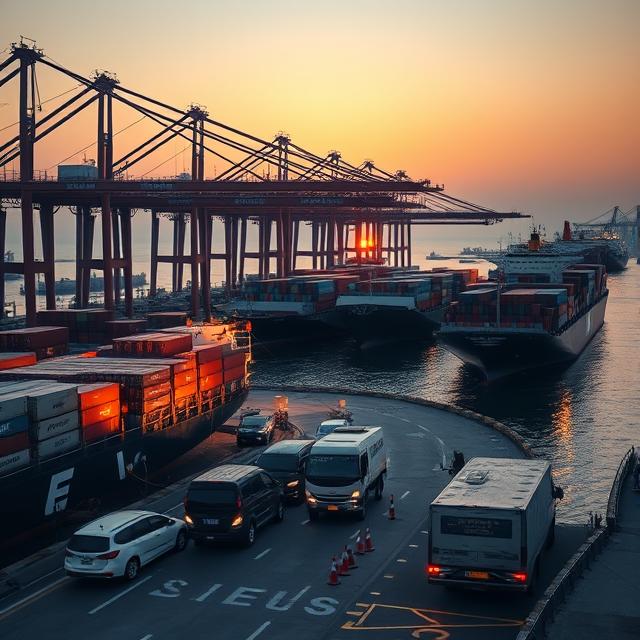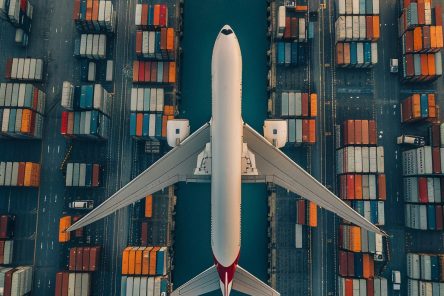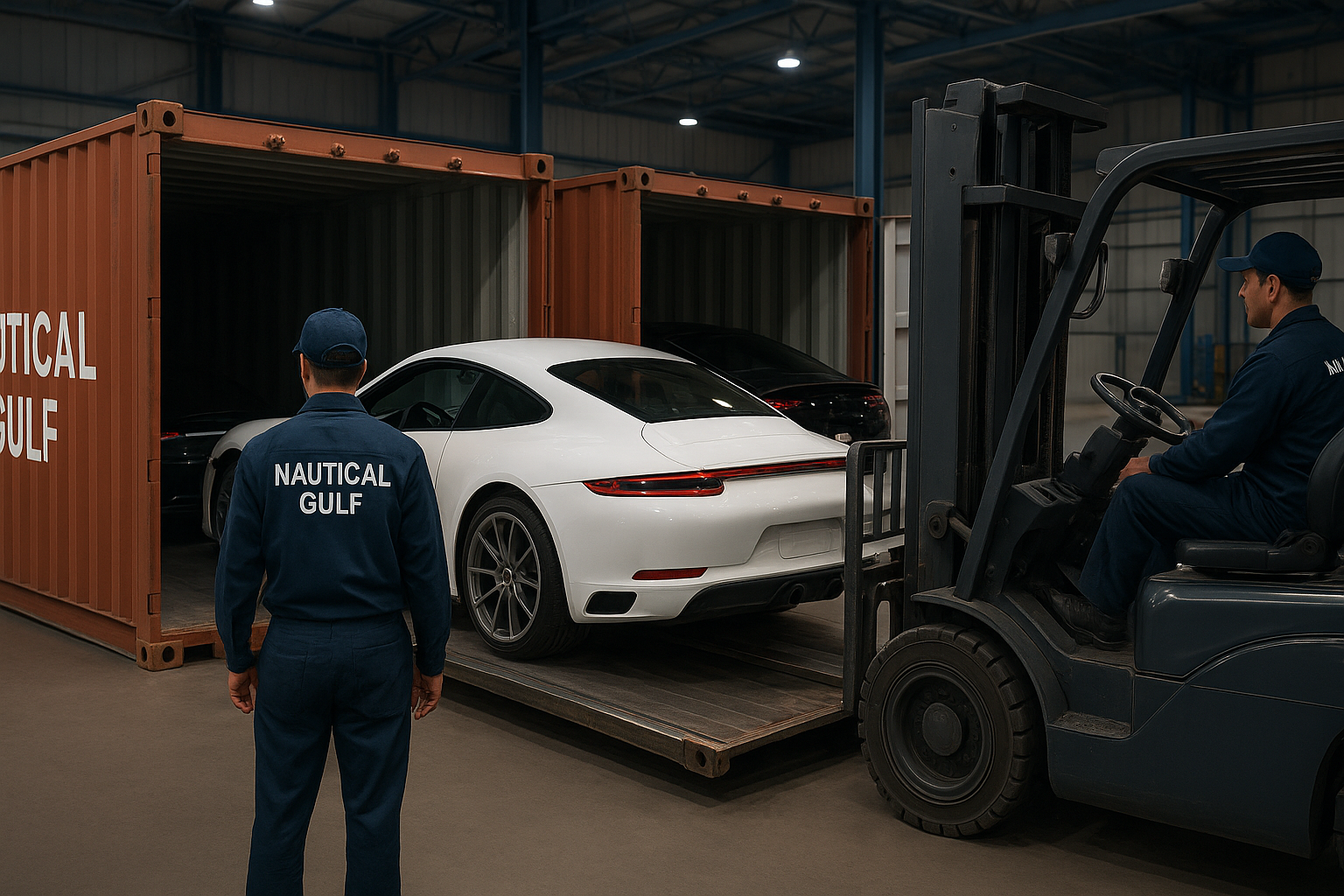Table of Contents
The logistics world is witnessing a monumental transformation — a shift from conventional high-emission cargo movement to eco-optimized, carbon-neutral freight models. Dubai, as a maritime gateway between East and West, stands at the forefront of this evolution. With its ports ranking among the busiest globally, sustainability has become not just an environmental need but a strategic advantage.
The UAE’s Green Agenda 2031 and Dubai Maritime Vision 2030 emphasize clean energy adoption, fuel optimization, and green trade corridors — placing sustainable shipping at the heart of modern logistics.

Sustainable shipping refers to transportation of goods via methods that minimize environmental impact while maintaining speed, efficiency, and reliability.
It involves:
- Using low-sulfur or bio-fuels in cargo vessels.
- Implementing smart route optimization systems powered by AI.
- Reducing emissions through vessel retrofitting and eco-friendly port operations.
- Enhancing cargo handling efficiency via renewable energy-powered terminals.
This approach aims to reduce maritime carbon emissions, align with IMO 2025 environmental targets, and future-proof global supply chains.
Dubai’s logistics dominance is built on geography, infrastructure, and innovation. The emirate’s ports — Jebel Ali, Port Rashid, and Al Hamriya — now serve as testbeds for green technology in shipping.
- Strategic trade links: Dubai connects over 150 ports across 100+ countries.
- Smart ports & automation: DP World’s AI systems reduce idle vessel time and emissions.
- Governmental incentives: The UAE provides tax benefits for companies adopting clean energy practices.
- Renewable energy integration: Solar power supports container storage and cold chain logistics.
Sustainability isn’t just an environmental trend; it’s a competitive differentiator.
Businesses adopting green shipping experience:
- Reduced fuel costs via route optimization.
- Higher operational transparency, improving stakeholder trust.
- Increased global compliance, avoiding IMO penalties.
- Brand reputation growth, aligning with global ESG expectations.

Even small-to-mid freight companies can offset costs by partnering with eco-certified logistics providers and integrating digital shipment tracking tools.
Dubai’s shipping ecosystem in 2025 is powered by technological innovation. Let’s look at the most impactful advancements:
- AI-Based Predictive Routing: Minimizes unnecessary voyages by calculating real-time sea conditions.
- Hybrid & LNG-Powered Vessels: Reduce emissions by over 40% compared to traditional fuel ships.
- Carbon Capture Systems: Installed on ships to neutralize CO₂ during voyages.
- Blockchain-Driven Supply Chains: Boost transparency and reduce paperwork waste.
- Smart Containers: Equipped with IoT sensors for temperature, pressure, and emission tracking.
To comply with IMO 2025 and UAE Maritime Law, shipping companies must:
- Report carbon intensity indicators (CII).
- Use energy-efficient technologies on all vessels.
- Maintain eco-certifications and environmental audits.
Dubai Customs also streamlines digital trade documentation, reducing paper usage and promoting eco-compliance.
Countries such as Germany, Japan, and South Africa now demand green freight documentation for imports.
As sustainability becomes mandatory in trade agreements, Dubai’s logistics companies have turned this into an exportable service — offering green-certified shipping to Africa, Asia, and Europe.
Eco-shipping isn’t only about technology; it’s also about people.
The UAE is investing in maritime education programs and green certification training for freight professionals. These initiatives ensure Dubai’s workforce stays globally competitive in the sustainability era.
Shippers today prefer logistics partners who demonstrate transparency, data accuracy, and eco-accountability.
In customer reviews, many emphasize:

- On-time, efficient delivery with reduced carbon footprints.
- Availability of sustainability tracking reports.
- Support from teams knowledgeable about green trade compliance.
While avoiding promotional tone, it’s worth noting how companies adopting sustainability models have become industry leaders.
For instance, platforms like Nautical Gulf have integrated smart shipping solutions, carbon-neutral route planning, and eco-audit compliance — aligning with Dubai’s 2025 sustainability goals.
By embedding AI-driven freight management and customer-centric data models, they exemplify the new standard for global trade efficiency.
By 2030, Dubai is projected to become the Middle East’s largest hub for zero-emission cargo.
Investments in green ports, solar logistics zones, and AI-enabled fleet management will further position the city as a global benchmark for eco-innovation.
Sustainable shipping isn’t a choice anymore — it’s the core of future trade growth.
Sustainable shipping solutions in Dubai mark a defining shift in how global trade functions.
The combination of regulatory strength, technological excellence, and eco-minded infrastructure ensures that the UAE remains an essential player in global maritime sustainability.
Whether exporting electronics to Germany or importing raw materials from China, green shipping practices not only help the planet but also ensure business longevity in a rapidly changing economy.
